Unlocking the Potential of Blockchain in Modern Business
In recent years, the concept of blockchain technology has transitioned from niche areas of finance to a repetitive buzzword across various industries. This digital ledger has the power to redefine multiple aspects of business operations. As more companies begin to explore this technology, understanding its potential becomes increasingly important.
Introduction
Blockchain technology is a decentralized digital ledger that records transactions across multiple computers. Its core principles include transparency, security, and immutability. Simply put, once data is logged on a blockchain, it’s nearly impossible to alter or delete—making the technology trustworthy and resilient against fraud.
In today’s rapidly evolving business landscape, blockchain is more than just a buzzword; it's a game-changer. Companies are no longer restricted to traditional methods that often come with bottlenecks and inefficiencies. With blockchain, businesses can streamline operations, increase accountability, and foster a new level of trust among stakeholders. As industries begin to reshape their practices around this technology, understanding what blockchain can offer is essential for staying competitive and innovative.
The Evolution of Blockchain
Blockchain technology didn't just spring up overnight; it has a rich history worth unpacking.
The Birth of Blockchain: Cryptocurrency
- 2009: Blockchain emerged as the backbone of Bitcoin, introducing a novel way to securely record transactions without a central authority.
- Initial Focus: At first, the technology was centered around cryptocurrency, revolutionizing how digital cash was managed.
Expansion into Smart Contracts
- 2013: Ethereum entered the scene, bringing smart contracts and expanding blockchain's capabilities beyond financial transactions.
- Pivotal Change: Enabled businesses to automate complex agreements without intermediaries.
- Innovation Spark: Led to the rise of decentralized applications (dApps) and the concept of programmable money.
Broadening Horizons: Industry Adoption
- 2015 Onwards: Various industries began piloting blockchain initiatives.
- Supply Chain: Enhanced traceability.
- Healthcare: Secured patient records.
- Each Application: Showcased blockchain's versatile capabilities, boosting confidence in broader adoption.
Modern Advancements
- The 2020s: Saw major improvements and regulatory developments.
- Layer 2 Solutions: Enhanced scalability, making networks faster and more efficient.
- Regulatory Frameworks: Began forming, providing security and assurance for business investments.
Conclusion: Looking Ahead
As we reflect on this evolution, it’s clear: blockchain's journey from a niche tech to a multi-industry game-changer shows no signs of slowing down. With ongoing innovations and an expanding array of applications, it’s an exciting time for businesses to explore how blockchain technology could reshape their operations.
Understanding Blockchain Technology
How Blockchain Works
At its core, blockchain is a decentralized digital ledger that records transactions across many computers. This setup means no single entity controls the entire chain, which enhances transparency and security. Each block contains a list of transactions, a timestamp, and a reference to the previous block, linking them in a chronological order. Once data is added, it becomes incredibly hard to alter—this immutability means that if something is on the blockchain, it’s as good as permanent.
Decentralization is crucial here. Unlike traditional databases controlled by a single organization, the blockchain operates on a peer-to-peer network. This confrontation of power mitigates the chances of fraud and provides a more trustworthy system. Transparency allows anyone within the network to view the entire chain, meaning all participants can verify the information independently.
The beauty of blockchain lies in its simplicity and reliability. Transactions are batched into blocks and added sequentially. Each member in the network possesses a copy of the entire chain, updating it in real-time. This widespread distribution makes it nearly impossible for anyone to manipulate prior entries without detection.
Types of Blockchains
Not all blockchains are created equal. They can typically be categorized into three main types:
-
Public Blockchains: Open to anyone, these operate on a fully decentralized network. Bitcoin is a prime example. Everyone can join, but the network is protected by cryptography and consensus protocols, which help ensure valid transactions.
-
Private Blockchains: Controlled by a single organization, these blockchains provide more privacy and are often used for internal business purposes. They offer the advantages of blockchain—such as transparency and speed—while restricting access to approved participants.
-
Consortium Blockchains: A middle ground between public and private, consortium blockchains involve multiple organizations working together. They share responsibilities for the network, making it suitable for industries where collaboration is key, such as supply chains.
Understanding the different types of blockchains can help businesses determine which format fits their needs best. Whether seeking collaboration or total openness, there's a blockchain option that can drive innovation and efficiency in operations.
Advantages of Blockchain Technology in Business
Blockchain technology offers numerous advantages that can significantly impact the way businesses operate today. By harnessing these benefits, organizations can streamline processes and enhance overall performance.
Increased Transparency
One of the standout qualities of blockchain is its ability to provide a transparent transaction record. Each transaction is recorded on a shared ledger that all authorized participants can access. This visibility reduces the chances of fraud and discrepancies. For instance, in supply chains, every step of a product’s journey—from raw materials to shelf—can be verified by anyone with access. This level of openness fosters trust among stakeholders, customers, and partners alike.
Enhanced Security
Security is crucial in any business operation, and blockchain excels in this area. It utilizes advanced cryptographic techniques to secure data, making it almost impossible for unauthorized parties to alter or tamper with records. This protection is particularly beneficial for sensitive data transactions, like financial exchanges or personal information in healthcare. The decentralized nature of blockchain also means that there’s no single point of failure, further fortifying its security.
Improved Efficiency
When it comes to efficiency, blockchain cuts out the middleman. By enabling direct transactions between parties, it reduces the time and cost associated with traditional banking or verification systems. Smart contracts, which are self-executing contracts with the terms directly written into code, can automate processes and lower operational costs. This means businesses can spend less time on bureaucratic processes and more time focusing on growth and innovation.
In conclusion, blockchain technology is not just a buzzword; it’s a practical tool that can enhance transparency, security, and efficiency in business operations. Embracing these advantages could very well be a game changer in the competitive landscape of modern business.
Use Cases of Blockchain Across Industries
Blockchain technology has matured beyond its initial iteration and now offers tangible benefits across various sectors. Its applications extend into finance, supply chain management, healthcare, real estate, and even government services. Here’s how each industry is leveraging this transformative tech.
Financial Services
In the financial realm, blockchain brings a new level of efficiency and security. Traditional banking systems often involve multiple intermediaries, leading to delays and increased costs. Blockchain streamlines these processes, enabling faster payments and real-time transactions without third-party involvement. Additionally, it reduces fraud possibilities through its secure, transparent ledger, making auditing straightforward and reliable.
Supply Chain Management
Supply chains thrive on transparency, and blockchain delivers just that. By providing an immutable record of every transaction from inception to delivery, all stakeholders gain unprecedented visibility. This means improved traceability of products, easy identification of bottlenecks, and enhanced accountability. In instances of recalls, businesses can quickly trace back through the chain to isolate affected products, ensuring consumer safety and brand integrity.
Healthcare
In healthcare, patient data security and integrity are paramount. Blockchain ensures that medical records are not only secure but also accessible across authorized entities while maintaining patient privacy. It streamlines processes like patient verification and drug traceability, preventing counterfeit medications from entering the supply chain. Such capabilities can ultimately lead to improved healthcare outcomes and reduced administrative burdens.
Real Estate
Navigating property transactions can be a labyrinthine process. Blockchain stands to simplify this significantly. By digitizing property titles on a blockchain, transactions can be managed with a higher degree of accuracy and reduced risk of fraud. Leasing agreements and transfers of ownership can also occur in a more straightforward, transparent manner. This efficiency not only saves time but also helps in building trust among buyers and sellers.
Government and Public Services
When it comes to public trust, transparency is critical. Here, blockchain has huge potential. Voting systems can benefit from blockchain’s secure, transparent nature, helping to ensure election integrity. It can also streamline identity verification processes for public services, making it easier to manage records while safeguarding against identity theft. Whether it’s maintaining public records or providing social services, the possibilities are vast.
By harnessing blockchain's unique capabilities, these industries are not just improving their operations—they're setting new standards for efficiency, security, and transparency. As the technology continues to develop, its impact is likely to widen, further integrating into our everyday business practices.
Implementing Blockchain Technology
Challenges Ahead
Adopting blockchain isn’t all smooth sailing. There are hurdles that need addressing before companies can truly harness its power. First off, there's a lack of understanding about blockchain’s fundamentals. Many businesses still see it as a tech-only realm, or worse, they confuse it with cryptocurrencies. This knowledge gap can stall progress and lead to misinformed decisions.
Next, scalability is another big player in the game. While blockchain can process transactions, it can struggle under heavy load. Large companies need to assess whether their chosen blockchain can handle their volume without experiencing lags or increased costs.
Then, we have regulatory uncertainties. The legal landscape surrounding blockchain is murky. Businesses are often left guessing about compliance, which can result in hesitation to innovate. Nobody wants to dive headfirst into an evolving space only to run afoul of regulations.
Finally, integration with existing systems is no small feat. Many organizations rely on legacy systems. Fitting blockchain into these can be a technical headache, requiring time and resources to work out kinks.
By understanding these challenges, companies can prepare for the journey ahead, acknowledging that while the road may be rocky, the potential rewards of blockchain are worth the effort.
The Future of Blockchain in Business
Emerging Trends
As we look toward the horizon of blockchain technology, a few key trends are beginning to emerge that could redefine how businesses operate. First, interoperability among different blockchain networks is gaining traction. Imagine a world where various blockchains communicate seamlessly, allowing for cross-industry collaborations and partnerships. This could enhance data sharing, increase efficiency, and ultimately lead to smarter business ecosystems.
Another trend to watch is the rise of Decentralized Finance (DeFi). DeFi platforms are shaking up traditional financial systems by providing financial services without the need for run-of-the-mill banks. Companies are starting to explore DeFi not just as a financial solution but as a way to innovate their entire business model, offering more flexibility and lower costs.
Moreover, the integration of blockchain with emerging technologies like artificial intelligence (AI) and the Internet of Things (IoT) is creating a powerful synergy. Picture smart contracts that automatically execute based on real-time data from IoT devices—this could revolutionize industries from logistics to home automation.
A Shift in Business Models
Blockchain's growing influence is likely to usher in a new era of business models. For instance, traditional supply chains may shift to more decentralized systems, enabling companies to operate directly with partners and consumers—cutting out the middlemen. This shift not only reduces costs but also fosters greater trust among stakeholders, as everyone has access to the same immutable data.
Furthermore, we might see a rise in token-based economies. Businesses could reward users with tokens for their engagement, data contributions, or participation in loyalty programs. These tokens could then be traded or redeemed, creating a vibrant ecosystem that encourages customer loyalty and active participation.
As these trends unfold, businesses will need to pivot and adapt. Embracing a flexible mindset and being willing to experiment with new models will be crucial. The future is not just about adopting blockchain—it's about rethinking how we do business in a world where decentralized trust is not just possible but expected.
Conclusion
As we look at the landscape of modern business, it's clear that blockchain isn't just a passing trend—it's a fundamental shift in how we manage data, transactions, and trust. Understanding blockchain technology is no longer optional; it's essential. The way companies conduct their operations, manage their relationships, and build their futures is being transformed by this innovation.
For businesses ready to step into the future, embracing blockchain means more than just adopting new technology. It’s about rethinking processes and strategies that have long been established. The incredible transparency, security, and efficiency that blockchain offers can propel organizations forward, but only if they are willing to invest time in learning and adapting.
Every moment spent now considering the implications of blockchain could translate into significant competitive advantages later on. Organizations of all sizes should keep their eyes on developments in this field, stay proactive in exploring blockchain applications, and position themselves as leaders in a landscape that's evolving rapidly.
In the end, it’s not just about technology—it’s about harnessing a new way of doing business that aligns with the demands of today's digital economy. The future is blockchain, and businesses that recognize this and act accordingly will likely thrive in this new era. So, stay informed, think strategically, and be ready to take the leap into a more transparent, secure, and efficient future.




